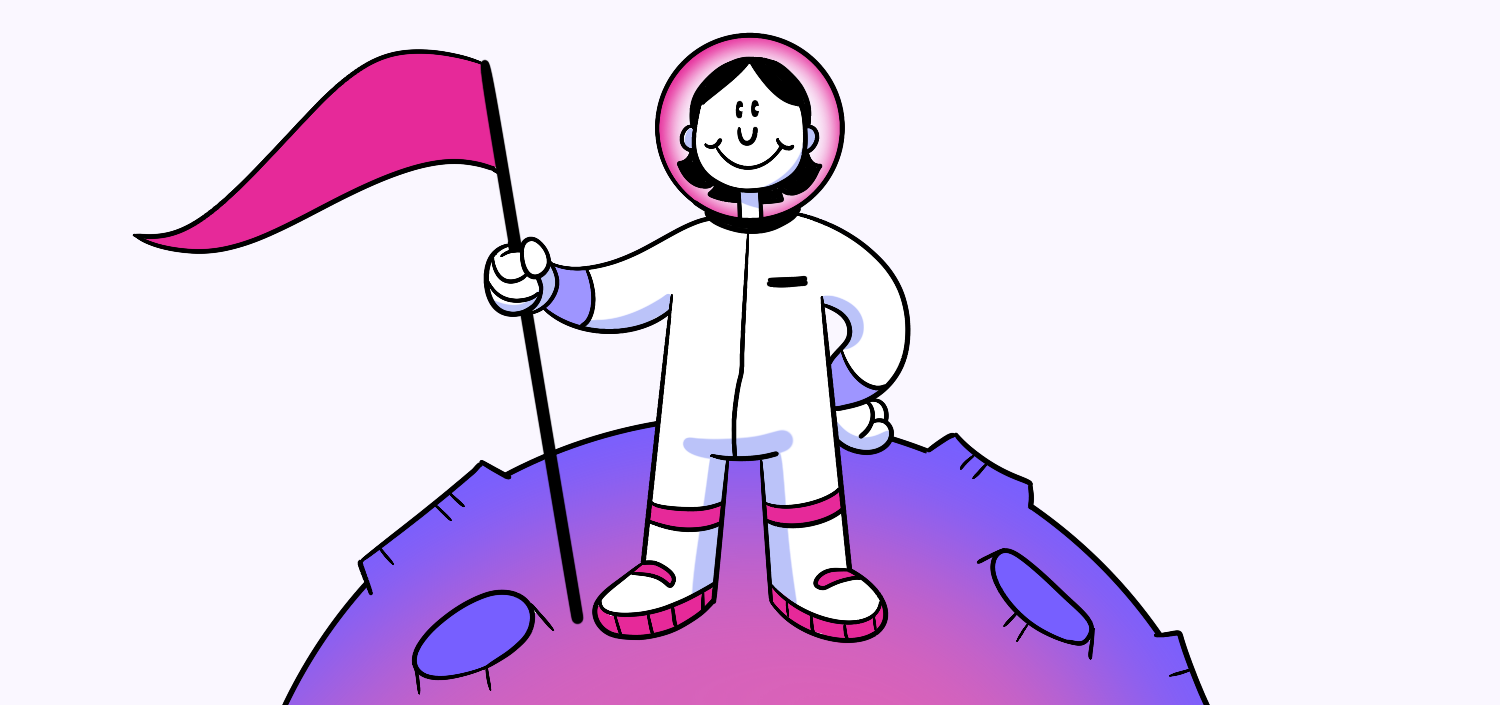The Evolution of the Concept: Tracing Its Origins
Concepts play a crucial role in our understanding of the world and how we navigate through it. They shape our perspectives, influence our decisions, and drive innovation in various fields. In this article, we will delve into the origins and impact of concepts, tracing their evolution from ancient civilizations to the modern era, and exploring their implications for society. Let’s dive in!
🔩 The Nuts and Bolts:
- Concepts are Foundational: Concepts are mental representations that help categorize and make sense of information, providing the foundation for knowledge in various disciplines. They shape our understanding and facilitate critical thinking across different fields.
- Influence Across Fields: Concepts play crucial roles in science, art, philosophy, and everyday life. They guide scientific inquiry, artistic expression, and philosophical debates, shaping how we perceive and interact with the world.
- Shaping Perspectives: Concepts influence our perspectives and interpretations of information. For example, sustainability can prioritize environmental conservation or economic growth, impacting decision-making processes.
- Historical Evolution: Concepts have evolved from ancient civilizations to the modern era. Early concepts in mathematics, philosophy, and science laid the groundwork for future advancements and continue to influence contemporary thought.
- Driving Social Change: Concepts like equality, human rights, and social justice have fueled social movements, leading to significant changes in societal norms and policies. They reshape our views on gender, race, identity, and diversity.
- Technological Advancements: Concepts have driven technological innovations throughout history. Ideas like electricity and computer programming have revolutionized how we live, communicate, and process information.
- Future Innovations: Future innovations will be shaped by evolving concepts. Ideas related to artificial intelligence, sustainability, and wellness will address global challenges and transform industries and societies.
Understanding the Concept: A Brief Overview
To start our exploration, it’s important to have a clear understanding of what a concept is. Simply put, a concept is a mental representation or an abstract idea that helps us categorize and make sense of the vast amount of information we encounter daily. Concepts are not limited to specific fields; they are pervasive in various domains, such as science, art, philosophy, and everyday life.
When we delve deeper into the world of concepts, we realize their significance in shaping our understanding of the world around us. Concepts serve as the foundation upon which knowledge is built, providing us with frameworks to comprehend complex phenomena and phenomena. They act as the guiding principles that allow us to navigate the intricacies of different disciplines and domains.
The Importance of Concepts in Various Fields
Concepts are the building blocks of knowledge in every discipline. In science, for instance, concepts like gravity, evolution, and electricity provide frameworks for understanding complicated phenomena. The concept of gravity, for example, enables us to comprehend why objects fall to the ground and why planets revolve around the sun. Similarly, the concept of evolution helps us grasp the intricate process of species adaptation and the development of life on Earth. Furthermore, the concept of electricity allows us to comprehend the flow of electrons and harness its power for various technological advancements.
In the realm of art, concepts such as perspective, color theory, and composition guide artists in creating visually appealing and meaningful works. Perspective, for example, allows artists to create the illusion of depth and three-dimensionality on a two-dimensional canvas. Color theory provides artists with a systematic understanding of how colors interact and evoke emotions, enabling them to convey specific moods or messages through their artwork. Additionally, the concept of composition helps artists arrange elements within a piece to create a harmonious and visually pleasing composition.
Similarly, concepts like justice, love, and freedom are fundamental to philosophical and ethical debates. These concepts shape our understanding of morality, guiding our actions and decisions. The concept of justice, for instance, influences our perception of fairness and equality, and forms the basis for legal systems and social norms. Love, on the other hand, is a concept that encompasses a range of emotions and experiences, influencing our relationships and connections with others. Freedom, a concept deeply ingrained in human history, has been a driving force behind social movements and political ideologies, shaping the course of nations and societies.
The Role of Concepts in Shaping Perspectives
Concepts not only help us understand the world but also shape our perspectives. Different concepts can lead to different interpretations and understandings of the same information. For example, the concept of sustainability may lead one person to prioritize environmental conservation, while another person may focus on economic growth. The concept of sustainability encompasses a holistic approach to resource management, considering the long-term well-being of both the environment and society. However, the interpretation and application of this concept can vary, leading to different priorities and actions.
Concepts like democracy, equality, and human rights shape our political ideologies and guide our decision-making processes. The concept of democracy, for instance, emphasizes the importance of citizen participation and equal representation in governance. However, the interpretation of democracy can vary, leading to different political systems and practices. Similarly, the concept of equality, while universally valued, can be understood and applied in various ways, leading to debates and discussions on social policies and justice. Human rights, another crucial concept, serves as a foundation for promoting and protecting the inherent dignity and worth of every individual, influencing international laws and policies.
In conclusion, concepts play a vital role in our understanding of the world and the various disciplines that shape our lives. They provide us with frameworks to comprehend complex phenomena, guide our creative endeavors, and shape our perspectives on important issues. By exploring and expanding our understanding of concepts, we can deepen our knowledge and engage in meaningful discussions that contribute to the advancement of society.
Build something your buyers *truly* want
Subscribe to Closing the Gap—a newsletter to help makers and doers get closer to customers. Learn more.
We believe in protecting your data. Here’s our Privacy Policy.
Tracing the Evolution of Concepts
Throughout history, concepts have continuously evolved, influenced by social, cultural, and intellectual changes. Let’s explore the different stages of their evolution.
Early Beginnings: Concepts in Ancient Civilizations
Even in the ancient civilizations of Mesopotamia, Egypt, and Greece, concepts played a significant role. Mathematics, astronomy, philosophy, and medicine were areas where early concepts were developed. For example, the concept of zero and the Pythagorean theorem emerged in ancient Greece, setting the foundation for future mathematical advancements.
Ancient Mesopotamia, known as the cradle of civilization, saw the development of concepts such as the wheel and cuneiform writing. These concepts revolutionized transportation and communication, shaping the course of human history. In Egypt, the concept of the afterlife and the belief in multiple gods influenced their religious practices and societal structure.
The ancient Greeks, with their emphasis on reason and logic, made significant contributions to various fields. Concepts like democracy, philosophy, and the scientific method were born during this time. The philosophical concepts of Socrates, Plato, and Aristotle laid the groundwork for Western thought and continue to shape our understanding of the world.
The Middle Ages and the Renaissance: A Shift in Conceptual Thinking
In the Middle Ages, conceptual thinking was largely influenced by religious and theological beliefs. The concept of God’s divine plan permeated every aspect of life, influencing art, politics, and social structures. However, the Renaissance period marked a shift towards humanism and a renewed interest in knowledge and exploration.
The Renaissance was a time of great intellectual and artistic flourishing. Concepts like individualism, human rights, and scientific inquiry gained prominence. Artists like Leonardo da Vinci and Michelangelo challenged traditional concepts of beauty and perspective, pushing the boundaries of artistic expression.
Scientific concepts also underwent a transformation during this period. The concept of heliocentrism, proposed by Nicolaus Copernicus, challenged the prevailing geocentric view of the universe. This revolutionary concept paved the way for future scientific advancements and a deeper understanding of our place in the cosmos.
Modern Era: The Rapid Evolution of Concepts
The modern era witnessed an explosion of concepts across various fields. Scientific discoveries, technological advancements, and social movements spurred the development of concepts like relativity, evolution, democracy, capitalism, and human rights. These concepts revolutionized our understanding of the world and transformed societies.
Albert Einstein’s theory of relativity introduced a new understanding of space, time, and gravity, challenging the classical concepts of physics. Darwin’s theory of evolution revolutionized biology, providing a framework for understanding the diversity of life on Earth.
Social and political concepts also underwent significant changes during this period. The concept of democracy, with its emphasis on individual rights and representative government, gained widespread acceptance. The rise of capitalism as an economic concept transformed the global economy, shaping the way societies functioned.
Furthermore, the concept of human rights emerged as a response to social injustices and inequalities. Movements like civil rights, feminism, and LGBTQ+ rights challenged traditional concepts of power and privilege, advocating for equal rights and opportunities for all individuals.
In conclusion, the evolution of concepts throughout history has been a dynamic and transformative process. From the ancient civilizations to the modern era, concepts have shaped our understanding of the world and propelled us forward. As society continues to evolve, concepts will undoubtedly continue to adapt and expand, leading to new discoveries and innovations.
UX Deliverables
The Impact of Concept Evolution on Society
The evolution of concepts has had profound impacts on society, shaping various aspects of our lives. Let’s explore some of these impacts.
Influencing Social Structures and Norms
Concepts like equality, human rights, and social justice have fueled social movements and led to significant changes in societal norms. The concept of gender equality, for instance, has driven efforts to reduce gender disparities and promote inclusivity. Concepts related to race, identity, and diversity have also reshaped how we think about and address social issues.
Driving Technological Advancements
Concepts have been at the forefront of technological advancements throughout history. The concept of electricity paved the way for inventions like the light bulb and the modern electrical grid. The concept of computer programming revolutionized the way we communicate and process information. As concepts continue to evolve, they will likely inspire and drive future technological breakthroughs.
Shaping Political and Economic Systems
Political and economic concepts play a crucial role in shaping governance and economic systems. Concepts like democracy, capitalism, socialism, and communism have shaped the political ideologies of nations and influenced the distribution of power and resources. The concept of globalization has transformed the way countries interact and trade with one another.
🚀 If you’re using Helio
Test your concepts quickly, with your target audience.

Concepts shape our perspectives, influence our decisions, and drive innovation.
The Future of Concepts: Predictions and Possibilities
As concepts continue to evolve, let’s explore what the future holds and some potential challenges in concept development.
The Role of Concepts in Future Innovations
Innovation is often driven by the development and application of new concepts. As we tackle complex global challenges like climate change and healthcare, concepts like sustainability and wellness will likely shape future innovations. Concepts related to artificial intelligence, automation, and renewable energy will also play a pivotal role in transforming industries and societies.
Potential Challenges in Concept Development
Concept development is not without its challenges. The complexity of certain concepts, cultural differences, and resistance to change can hinder the adoption and advancement of new ideas. Furthermore, concepts that address emerging ethical dilemmas, such as artificial intelligence and genetic engineering, raise important questions that require careful deliberation and consensus-building.
The Interplay between Concepts and Future Societal Changes
As concepts continue to evolve, they will undoubtedly shape and be shaped by future societal changes. Concepts related to sustainability, social justice, and equality will likely gain more prominence as societies grapple with global challenges. The interplay between concepts and societal changes will shape the direction of our future, ensuring that our understanding of the world keeps pace with technological advancements and societal needs.
In conclusion, concepts are powerful tools that shape our understanding and perceptions of the world. From their origins in ancient civilizations to their impact on modern society, concepts continuously evolve and influence various domains. As we navigate the complexities of the future, concepts will guide our innovations, shape our societal structures, and play a pivotal role in addressing pressing global challenges. So, let’s embrace the ever-evolving nature of concepts and explore their limitless possibilities.
Concept FAQs
A concept is a mental representation or an abstract idea that helps us categorize and make sense of information. It is used across various fields to organize knowledge and facilitate understanding.
Concepts are important because they provide frameworks for understanding complex phenomena in science, art, philosophy, and everyday life. They guide inquiry, expression, and debate, shaping our perception of the world.
Concepts shape our perspectives by influencing how we interpret and understand information. Different concepts can lead to different interpretations, impacting our decisions and actions based on those perspectives.
Concepts have evolved from ancient civilizations, with early advancements in mathematics, philosophy, and science. Over time, concepts have continued to develop, influencing modern thought and innovation in various fields.
Concepts like equality, human rights, and social justice have driven social movements, leading to changes in societal norms and policies. They reshape how we view and address issues related to gender, race, identity, and diversity.
Concepts drive technological advancements by providing foundational ideas that lead to innovations. Concepts like electricity and computer programming have revolutionized our communication, information processing, and daily lives.
Concepts will continue to shape future innovations by addressing global challenges and transforming industries. Ideas related to artificial intelligence, sustainability, and wellness will drive advancements and societal change.



